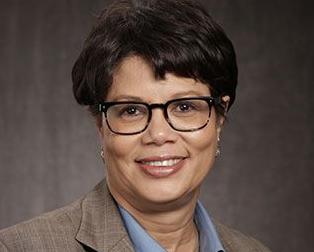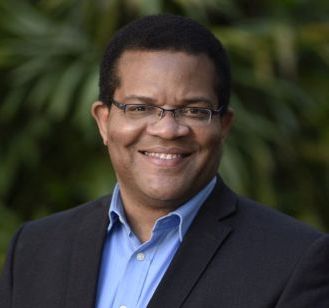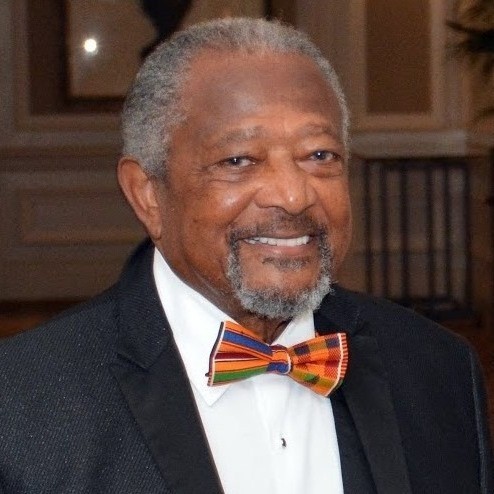Racial inclusivity in Covid
In many US cities, hospital systems appear to be segregated, with some hospitals serving many more patients from communities of color than others. How did the pandemic change – or reinforce – these patterns?
We had on a guest panel of health equity experts to discuss the impact of Covid on hospital inclusivity. Watch the recording of the event below:
The conversation touched on many aspects of hospitals segregation, including the impact of COVID, structural racism, payment models, and potential solutions.
Racism is the problem
The panel highlighted the impact of racism within healthcare policies and practices that have persisted over decades. The racial inclusivity metric is “a vivid illustration of structural racism.,” said Dr. Tony Iton.
“No matter what we say in all our deliberations, we have to come back to racism,” said Dr. Richard Allen Williams. He compared racism to a modern day Medusa, saying, “we have to use proper techniques to cut the head off this monster.”
“No matter what we say in all our deliberations, we have to come back to racism.”
Dr. Richard Allen Williams
“What we see in our hospitals, policies, and practices were built long ago, and so many of those things have not been changed. Hospitals that are doing better have taken a concerted effort to looking at those things,” said Brenda Battle.
The University of Chicago performs well on inclusivity because they serve the people of color in their community, but there is still room for improvement, said Battle. She pointed out that the hospital has only been making changes in the last 15 years. “We need services that need to be better— we haven’t been doing that throughout our history,” she said.
COVID and segregation
The Lown Hospitals Index analysis found that hospital markets were more equitable for COVID patients. Compared to their whole Medicare patient population, hospitals’ Medicare patients with COVID were more racially aligned with their communities.
“So many hospitals in many communities came together in addressing COVID. We have the ability to take care of all of the patients that need care in the community.”
Brenda Battle
Brenda Battle said this pattern rings true to her experience in Chicago’s hospital market. “So many hospitals in many communities came together in addressing COVID,” said Battle. This means that more equitable care is possible. “We have the ability to take care of all of the patients that need care in the community,” she said.
Making hospital care more accessible and equitable will mean changing how hospitals are paid, the panel said. “Hospitals are businesses at the end of the day,” said Tony Iton. “They operate under principles of market justice, not social justice.”
“Hospitals are businesses at the end of the day. They operate under principles of market justice, not social justice.”
Dr. Anthony Iton
Iton recalled a story from a pediatrician colleague in Oakland who got reprimanded by hospital leadership for offering too many services to Medicaid patients. The pediatrician was essentially told that their life’s work was incompatible with the bottom line of the hospital.
We have to better align the incentives of hospitals with those of the community. “Hospitals should be responsible for the health in the communities,” said Iton. He suggested that hospitals could get supplemental payments for improving rates of important health markers like obesity and diabetes, and social determinants like high school graduation rates.
About the guests
Brenda Battle, MBA, BSN
Senior Vice President of Community Health Transformation and Chief Diversity, Equity & Inclusion Officer at the University of Chicago School of Medicine
Brenda Battle joined the University of Chicago Medicine and Biological Sciences Division in 2012 as Vice President for Care Delivery Innovations, Urban Health Initiative and Chief Diversity, Inclusion and Equity Officer. In her role Battle is responsible for collaborating with medical and administrative leadership to foster innovation in the University of Chicago Medicine’s care delivery system, assist in the implementation of new models of care and facilitate integration of care between the hospital and community.
Battle is the lead administrator of UChicago Medicine’s Urban Health Initiative the community and public health division focused on eliminating health disparities, promoting health equity, and improving health and access to quality care for persons living on the South Side of Chicago. As Chief Diversity, Inclusion and Equity Officer, Battle is responsible for crafting strategies and programs to create an environment that promotes diversity, inclusion and culturally sensitive care delivery models. Prior to joining the University of Chicago, Battle was the director of the Center for Diversity and Cultural Competence for Barnes-Jewish Hospital in St. Louis, MO.
Anthony B. Iton, MD, JD, MPH
Senior Vice President Of Building Healthy Communities at The California Endowment
As Senior Vice President of the Building Healthy Communities program, Iton is leading an effort to empower residents in 14 cities across California with the worst health outcomes to fight for changes in their communities that will help them lead healthier lives. When residents are engaged in holding elected officials accountable for fair educational opportunities, good jobs and more green space, Dr. Iton believes that good health can thrive.
This place-based approach is founded on the idea that residents can’t be asked to eat healthier food, exercise more, regularly visit the doctor or get a better job if those opportunities aren’t available in the communities where they live. The BHC model attacks the root causes of health inequities by convening and supporting community partners on the ground. By building resiliency and advocacy among residents, his work has made significant and sustainable advances in public health for thousands of Californians.
Prior to his appointment at The Endowment, Iton served as the director and County Health Officer for the Alameda County Public Health Department. Under his leadership, Alameda County launched an innovative plan to improve the health and lifespan of low-income communities by focusing on the poverty, racism and discrimination that prevented residents from getting good housing, better jobs and quality healthcare and educational opportunities. Published in numerous public health and medical publications, Iton is a regular public health lecturer and keynote speaker at conferences across the nation.
Richard Allen Williams, MD, FACC
Founder of the Minority Health Institute and Association of Black Cardiologists, former President of the National Medical Association
Dr. Richard Allen Williams, the Founder and President of the Minority Health Institute, 117th President of the National Medical Association and Founder of the Association of Black Cardiologists, is a cum laude honors graduate of Harvard University. He attended the State University of New York Downstate Medical Center where he received the M.D. degree. He later performed a Cardiology fellowship at Brigham and Women’s Hospital and Harvard Medical School. In 1972, he became Assistant Medical Director at the new Dr. Martin Luther King, Jr. Hospital where he secured a $3 million dollar grant to establish the King-Drew Sickle Cell Center, of which he became the Director. Later, he moved to the West Los Angeles VA Medical Center and became Chief of the Heart Station and Head of the Cardiology Department. At present he is Clinical Professor of Medicine at the UCLA School of Medicine (full Professor) and was the first African American to achieve that status in the UCLA Department of Medicine.
Dr. Williams is considered an international expert on hypertension, healthcare disparities, dyslipidemia, diabetes, obesity, heart failure, and sudden cardiac death. He has authored eight books, numerous book chapters, several scholarly articles, and dozens of scientific papers. He wrote the ground-breaking Textbook of Black-Related Diseases (McGraw-Hill) in 1974 and the critically acclaimed Healthcare Disparities at the Crossroads of Healthcare Reform (Springer, 2011). His ninth book, Blacks in Medicine: Clinical, Demographic, and Socioeconomic Correlations (Springer) is in progress.



